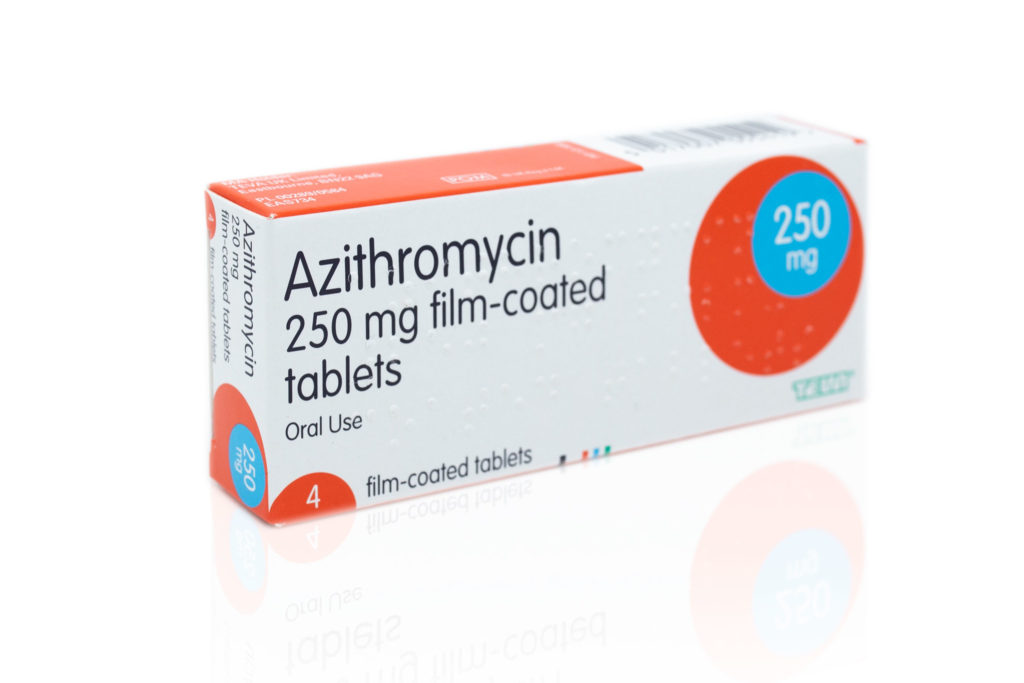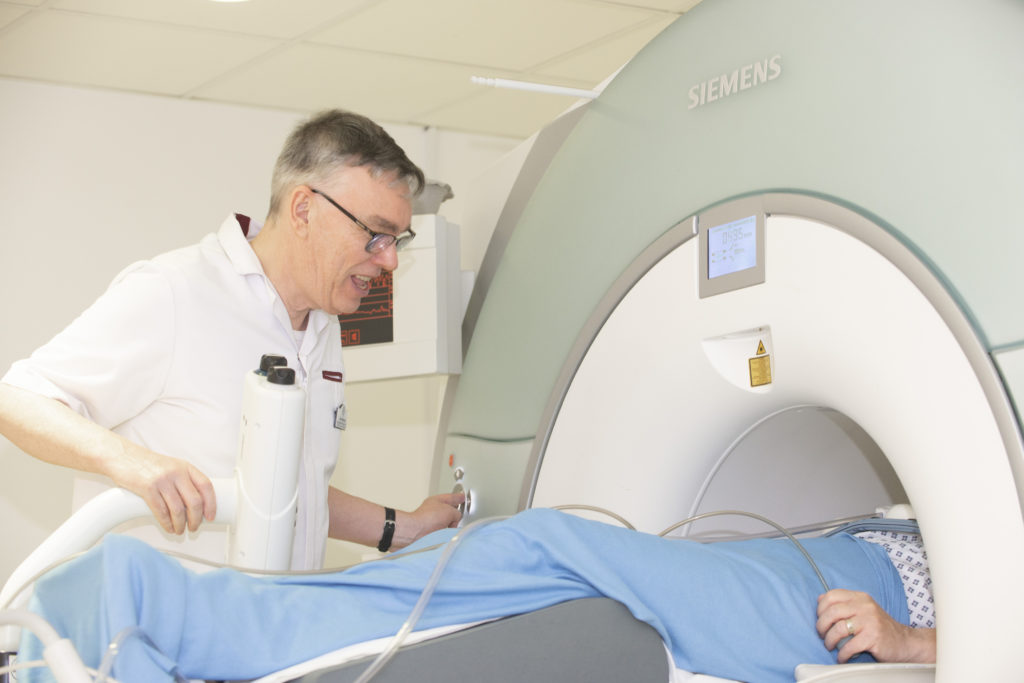The NIHR Oxford Biomedical Research Centre (BRC) has allocated funding to three COVID-19 research projects in an attempt to improve treatment, understand how the virus interacts with chronic diseases, and the longer-term effects of infection on organs.
The funding, originally earmarked for BRC cross-theme cluster projects, has been diverted to research projects in the BRC’s Respiratory, Technology and Digital Health, and Imaging themes.
The Oxford BRC’s Director, Prof Helen McShane, said: “The researchers we support are already at the forefront of national efforts to find a vaccine for COVID-19, and effective treatments for patients – both in hospitals and general practice – who have contracted the virus.
“Such is the breadth of expertise in our BRC – whether in immunology, technology, big data or imaging – that we are especially well placed to address many different aspects of this pandemic, from developing treatments in the short-term, to looking at the longer-term impacts of the virus.
“For this reason, we have released funds to get these projects up and running as quickly as possible so that as many patients can benefit as possible.”
Widely-used drug
COVID-19 (Novel Coronavirus-induced disease 2019) can induce severe disease in 30 percent of hospitalised patients. Progression from a mild fatigue, fever and cough, to severe respiratory failure requiring mechanical ventilation typically happens one to two weeks into the disease.
This provides a window of opportunity to provide disease-modifying treatment. One candidate is Azithromycin (AZM), a commonly used antibiotic. AZM, used for a range of common infections, is safe, inexpensive and available worldwide. It also has broad antiviral properties and has been used against a wide range of inflammatory lung diseases and viruses, including the common cold, Influenza A, Zika virus, and SARS.

The ATOMIC trial, led by Dr Tim Hinks of the Experimental Medicine Division of the Nuffield Department of Medicine, will test the efficacy of 14 days of once-daily AZM tablets in preventing progression from moderate disease to severe respiratory failure in patients who present to hospital with COVID-19, but who are suitable for initial management as outpatients.
Dr Hinks said: “Severe respiratory disease occurs relatively late in the infectious process after virus numbers have begun to decline and so, by the time a patient is admitted to hospital an approach which predominantly targets the excess lung inflammation is likely to be more effective than simple antiviral therapy. AZM does both.
“It has broad antiviral properties against a wide range of viruses. As an anti-inflammatory it suppresses a wide range of inflammatory chemical messengers which are not suppressed by traditional steroids. AZM has therefore proved effective in treating a variety of inflammatory lung diseases. It has additional antibacterial properties which may help prevent secondary bacterial infection, present in 16 percent of COVID-19 deaths. This medicine is already being used in some places but what is urgently needed is solid evidence based on well-designed clinical trials.”
Chronic conditions
Another research project, jointly led by Prof Peter Watkinson of the Nuffield Department of Clinical Neurosciences and Professor Julia Hippisley-Cox of the Nuffield Department of Primary Care Health Sciences, will use national QResearch-Oxford record linkage study to understand whether drugs commonly taken for chronic conditions such as hypertension or diabetes may exacerbate or reduce the severity of COVID-19 disease.
It is hoped this study will be able to identify alternative drugs for patients with chronic conditions, as well as possible drugs to treat COVID-19; and identify high-risk patients in primary care.
Around 14 percent of the adult population in England take anti-hypertensive medications, and around five percent receive medication to treat diabetes. The prevalence increases with age, making usage particularly common in those at risk of for severe COVID-19 infections. In many cases drugs from a different class could be used instead.
Prof Watkinson said: “If these drugs are increasing the risk of severe infection, they represent one of the few modifiable risk factors for severe COVID-19 infection. Medical and research communities need rapid large-scale accumulation of data on the outcomes of patients who develop COVID-19 infection whilst taking these drugs to allow appropriate risk assessment and clinical decision making for these patient groups.“
Other drugs in common use in primary care patients are believed to have anti-viral activity to COVID-19, such as hydroxychloroquine, used in rheumatoid arthritis, and lopinavir-ritonavir, used in the treatment of HIV.
There are also immune-suppressive therapies that may either increase the risk of severe illness by preventing the body’s response to infection, or attenuate the hyperinflammation syndrome associated with COVID-19 disease, so preventing severe disease.
“The incidence of severe disease in patient groups taking these medications urgently needs to be established to guide both their management and investigation of COVID-19 treatment strategies,” Prof Watkinson explained.
The Intensive Care National Audit and Research Centre (ICNARC) is already providing up-to-date information on the admission characteristics and outcomes of all patients with severe COVID-19 infection treated on an ICU in England, Wales and Northern Ireland.
Prof Hippisley-Cox and Prof Watkinson’s study will seek to match this against data on prior long-term medication and chronic disease, information contained in the QResearch databases derived from the anonymised general practice health records.
“We estimate we will be able to link over 50 percent of all patients with severe COVID-19 infections in England, Wales and Northern Ireland. We will provide useful knowledge that patients, GPs and intensive care doctors can use to reduce the risk of severe COVID-19 infection within this pandemic,” Prof Watkinson said.
Prof Hippisley-Cox said: “This is an urgent question of international importance which is likely to directly inform policy and patient care. We are uniquely placed to do this research rapidly at scale using the QResearch database which has recently relocated to Oxford and which is already linked to hospital and mortality data.
“This is the first time GP data has been linked to this clinically-rich ITU database nationally. It will establish a world-class resource to enable COVID-19 research both in the short and longer term as we get to grips with understanding this new disease and how best to treat it.”
Imaging
The third project, the C-MORE study, led by Dr Betty Raman of the Radcliffe Department of Medicine and the Oxford BRC’s Imaging Theme, is looking at the longer-term impact of the virus on patients’ organs.

Previous studies have suggested that the effects of corona virus infection can carry on for months after the acute infection. Six months after infection, SARS survivors exhibited persistent impairment in lung function, exercise capacity and quality of life compared to a normal population.
Using Oxford’s advanced state-of-the art imaging facilities, Dr Raman’s group will assess what the long-term effects of COVID-19 infection are, not just on the lungs, but also the heart, liver, kidney and brain.
The team will recruit Oxford University Hospitals patients with moderate to severe COVID-19 infection, as well as healthy individuals to act as controls.
Where clinically indicated, they will undergo a cardiac MRI scan and a chest CT scan during the acute stage, along with routine clinical investigations, including blood tests, to check for biomarkers of injury to the heart, liver and kidneys.
Six months later, participants will undergo a multi-organ MRI to assess the heart, brain, liver and kidneys, a repeat chest CT, as well as a series of tests, exercises and questionnaires to assess lung, cardiovascular and brain function, quality of life, frailty and mental health.
The patients’ clinical data will be collected for up to 12 months after the infection from electronic patient records, general practice information systems and other NHS databases.
Dr Raman said: “COVID-19 is a global public health emergency. We expect our study to provide a number of new insights into the prevalence and extent of persistent multi-organ damage in COVID-19 patients, as well as deeper understanding of the impact on the quality of life of affected individuals and the need for ongoing medical surveillance will emerge from this work.
“We anticipate our work will pave the way for the development of treatment pathways intended to prevent and limit multi-organ injury in future viral pandemics.”